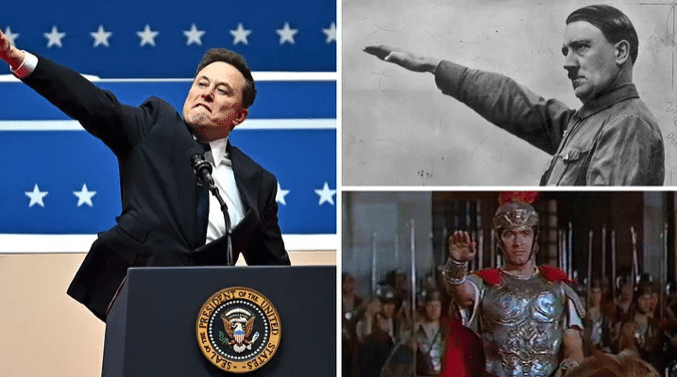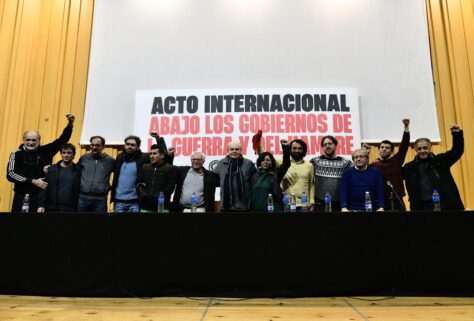





Conflicts between countries and regions have far-reaching consequences, affecting not only the directly involved parties but also the international community at large. Ukraine's President Volodymyr Zelenskiy has criticized Iran's role in both the conflicts with Ukraine and Israel, drawing parallels between the assault by Hamas on Israel and Russia's invasion of Ukraine [16b2068f]. Zelenskiy questions Iran's denial of supplying Russia with drones used in Ukraine and its claim of not being involved in the attacks on Israel. While US Secretary of State Antony Blinken has stated that there is no evidence of Iran's involvement in the attacks on Israel, he acknowledges the long-standing ties between Iran and Hamas [16b2068f]. This highlights the complex web of relationships and alliances that can shape conflicts.
In the face of terrorism, Zelenskiy emphasizes the need for global cooperation and action, calling for Ukraine's voice to be heard in international affairs [16b2068f]. This underscores the importance of collaboration and unity in addressing global challenges.
Meanwhile, in Afghanistan, a series of earthquakes has devastated communities, resulting in the loss of over 2,000 lives. Afghan villagers and volunteers are working tirelessly in search and rescue efforts, while aid slowly reaches the affected region. However, providing shelter for the displaced population remains a major challenge [16b2068f]. This demonstrates the resilience and compassion of individuals coming together in times of crisis.
On the international stage, US Senate Majority Leader Chuck Schumer has criticized China for its lack of support for Israel in the recent Hamas attack. Schumer expresses disappointment with China's statement, which called for restraint from both sides but did not show sympathy or support for Israel [16b2068f]. This highlights the complexities of diplomatic relationships and the differing perspectives countries may have in times of conflict.
The ongoing conflicts in Gaza and Ukraine have divided the world into different geopolitical tribes. The author argues that it is important to find a common pattern that holds the views on both conflicts together. The author presents a quadrant chart to map the different opinions on Ukraine's rights and the project of a Palestinian state. The top right quadrant represents those who believe in both sets of rights, while the bottom right quadrant represents Westernists who prioritize Ukraine's struggle for independence over the Palestinian cause. The top left quadrant represents anti-Westernists who oppose both Ukraine and Israel, and the bottom left quadrant represents those who oppose the aspirations of both Ukrainians and Palestinians. The author concludes that our positions are often based on principles or party affiliations, and as Western power declines, people are increasingly finding comfort in their own tribes [110dbc88].
Ukrainian activists are expressing solidarity with Palestine in their struggle for self-determination. They criticize the selective solidarity shown by some on the left and various imperialist powers. The activists argue that Ukraine and Palestine share similarities in terms of occupation, land grabbing, and ethnic cleansing. They reject the comparison between Ukraine and Israel, stating that Ukraine did not take someone else's land or bombard civil infrastructure. They emphasize that both Israel and Russia use the same justification of 'the right to self-defense' to invade and occupy land. The activists also discuss the contrast in demands for a ceasefire in Gaza and Ukraine, highlighting that the demand for a ceasefire in Ukraine is imposed by Western leftists and ignores the voices of Ukrainians. They argue that a ceasefire in Ukraine would ratify the occupation and subject civilians to repression. The article also mentions the diplomatic ties between Ukraine and Palestine, as well as the support Ukraine has shown for UN resolutions denouncing Israel's occupation. The impact of the Biden administration and Zelenskyy's equation of Israel and Ukraine on support from the Global South is discussed, with the activists emphasizing the need to recognize and be sensitive toward the colonial experiences of the Global South. The article concludes by calling for solidarity that transcends selective politics and fosters mutual empathy and understanding.
In a broader context, the historical backdrop of imperialism and war is critical to understanding current global conflicts. A recent analysis highlights the ongoing inter-imperialist conflict between the U.S. and China, with proxy wars like the one in Ukraine resulting in over a million casualties. The escalating violence in Gaza and the strategic importance of Taiwan further complicate the geopolitical landscape. The U.S. military is reportedly preparing for a possible multitheater war, reflecting the heightened tensions across three main theaters of conflict: Ukraine, the Middle East, and the Western Pacific. The article calls for an international socialist revolution to end these imperialist wars and stresses the need for solidarity among the working class globally [5f678e04] [110dbc88] [16b2068f] [22f16829] [d13e5716].
In a recent analysis, Murat K. Girgin argues that capitalism inherently leads to cycles of war and peace, as outlined by Marx and Lenin. He suggests that Trump's 'Make America Great Again' reflects capitalist ambitions shared by global elites, warning that U.S. imperialism under Trump may usher in a new wave of global fascism [713a3337]. Historical cycles show that wars are driven by economic needs for capital accumulation, and post-war periods are merely transitions for imperialist reconstruction. Girgin warns that genuine peace is unattainable under imperialism, as conflicts are rooted in capitalist contradictions, which further complicates the already tense geopolitical landscape [713a3337].